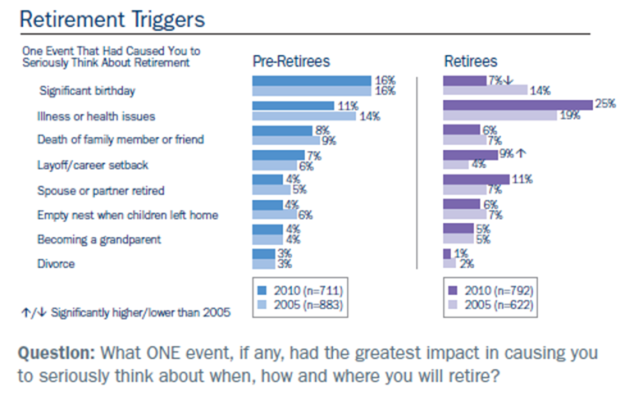walkinwood
Thinks s/he gets paid by the post
I came across this article and found it interesting. Never mind the sponsor - the study surveys people and their attitudes/feelings towards retirement. (The report focuses on standard retirement age, but I saw parallels to ER in it)
Ameriprise Newsroom | New Retirement Mindscape II Study: The Stages of Retirement Have Changed
What's a study without slicing and dicing the data?
Ameriprise Newsroom | New Retirement Mindscape II Study: The Stages of Retirement Have Changed
What's a study without slicing and dicing the data?
It ends on a positive note:The New Retirement Mindscape IISM study, conducted by telephone by Harris Interactive, uncovered six distinct attitudinal and behavioral stages that occur before and during retirement: 1) Imagination, 2) Hesitation, 3) Anticipation, 4) Realization, 5) Reorientation and 6) Reconciliation. This compares to five stages that were identified in the previous study: 1) Imagination, 2) Anticipation, 3) Liberation, 4) Realization and 5) Reorientation.
There is a link to the whole report on the page.“Coming out of the recession, it may not be surprising that people – especially those who are closest to their retirement day – are looking at this important milestone differently,” added Brimhall. “However, I’m encouraged to see consumers in some stages take a more proactive approach to planning and saving. I believe that the more people understand the stages of retirement and prepare themselves – emotionally and financially – the more likely it is they’ll have the confident and fulfilling retirement they desire.”


